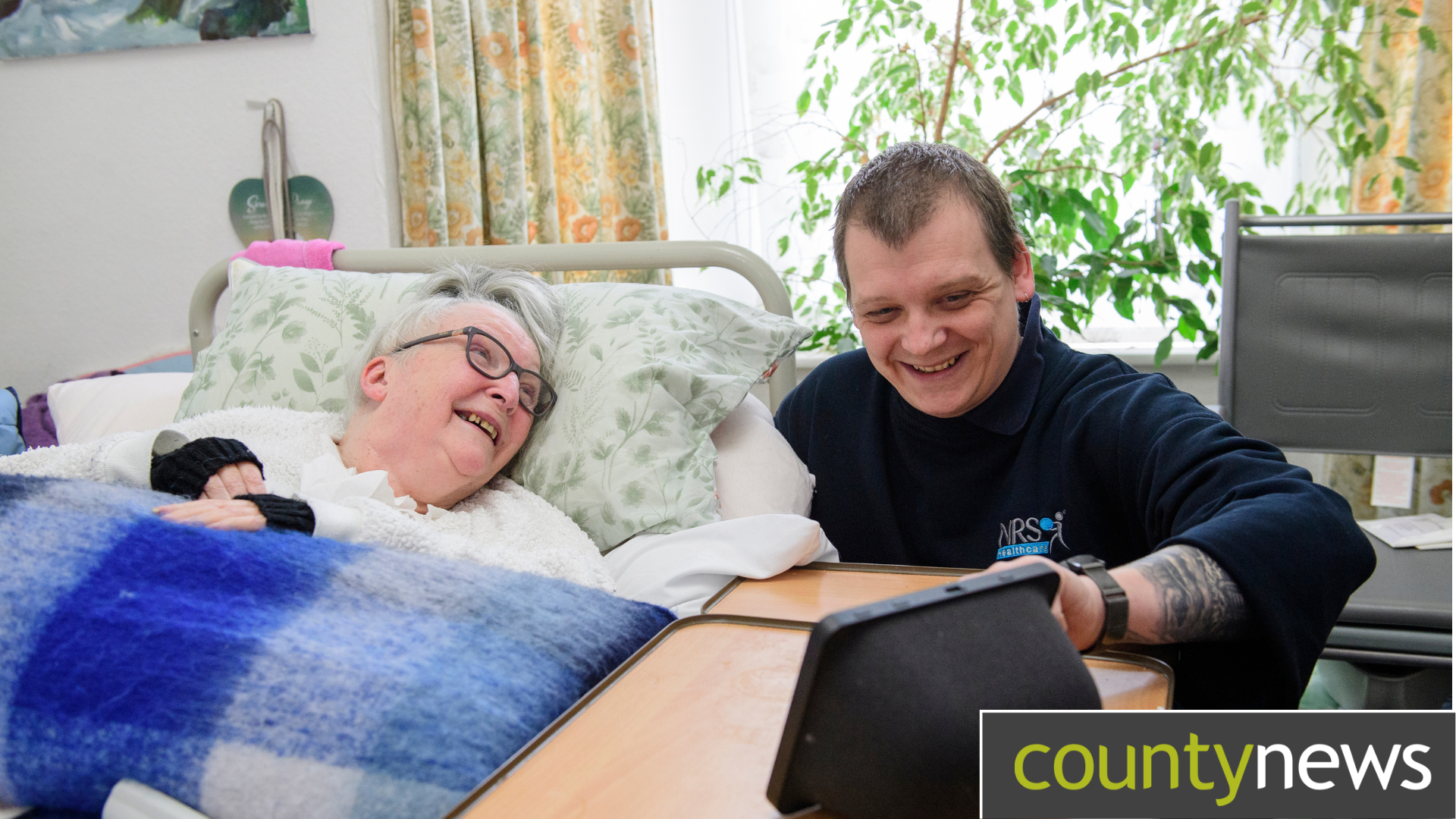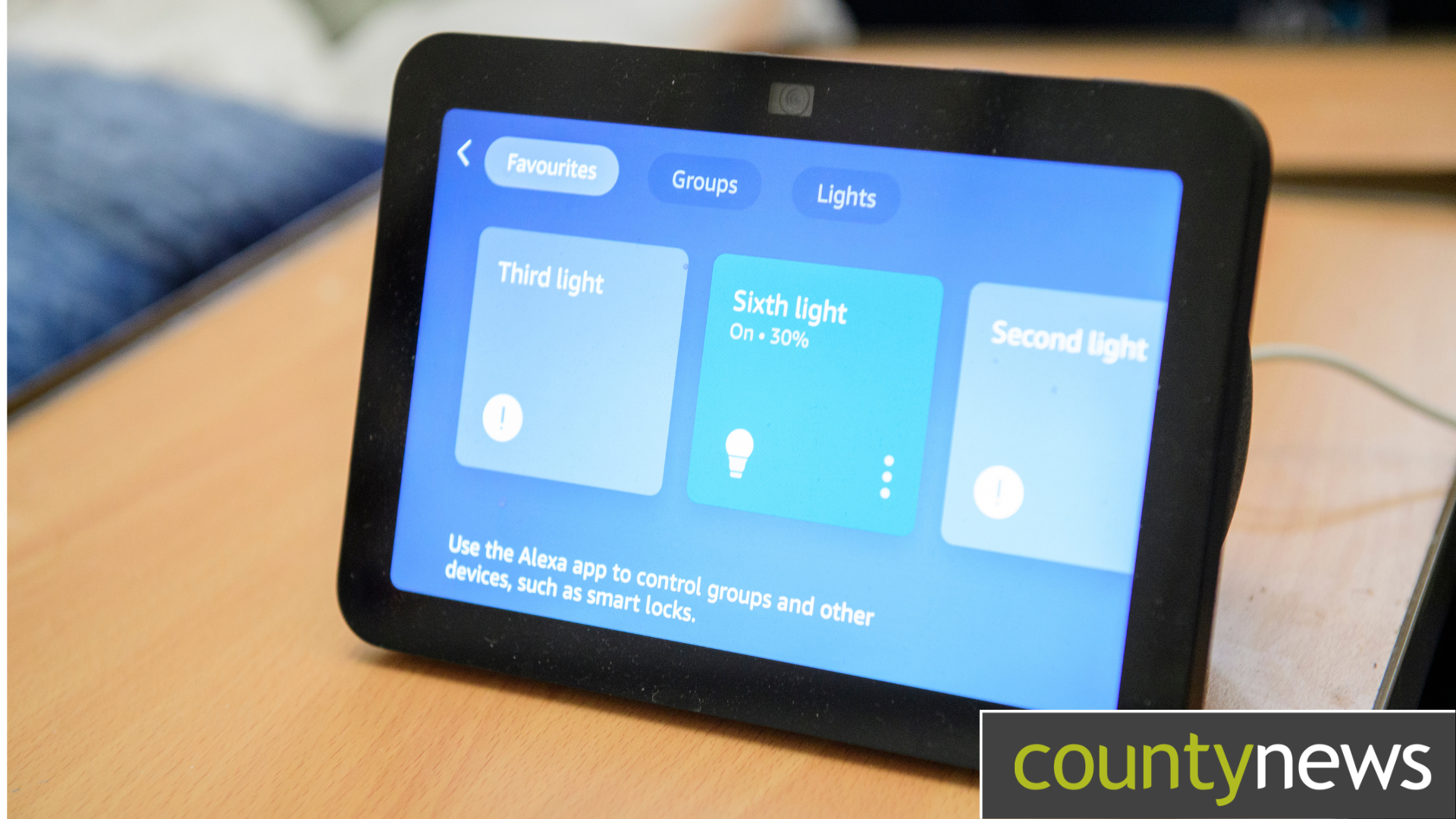
A pilot scheme aimed at providing technology to help people to stay independent at home has changed the life of a Lincolnshire woman
Veronica Eden, a former international teacher from Gainsborough, says that being supplied with new technology in her home has had a huge positive effect on her life.
Specialised equipment has been fitted to help her with daily tasks such as turning lights off and on, and video-calling her daughter in Spain. The equipment has been provided for her following a social care needs assessment with the council.
The scheme will also see the fitting of smart plugs which will enable Veronica to turn anything with a plug on or off using a digital screen. As she is permanently restricted to her bed, it’s now possible for her to adjust the heating or turn the radio on independently.
“This has transformed my life,” explained Veronica. “It gives me back control of my environment, I don’t have to wait for care workers to get here.
“It has also given me my daughter back. The monitor is nice and close and I can make video calls to my daughter in Spain when I want to. I think I was the first person in Lincolnshire to benefit from this council pilot scheme and I’m so pleased that I was able to take part.”
The 18-month scheme was launched last February and has so far helped 177 people, with 192 pieces of equipment fitted to help people remain independent in their homes. Advisors supply and install the equipment and make sure those using it can use it confidently.
As well as allowing people to stay at home instead of going into residential care, it can also reduce the number of one-to-one home visits that might be required.
Care technology consultant, Dan Clarke, who is responsible for working with residents and installing the equipment in homes, said: “Basically, we can help Veronica to operate anything with a plug in her room, on her own.
“What it does for Veronica, or for anyone that is accepted on this pilot scheme, is it maintains their independence. The people we help want to remain in their home, and this sort of technology can help to make that possible.”
To find out more about technology that can help you live independently at home, go to our connect to support directory of services website: lincolnshire.connecttosupport.org
The future of care
The council’s adult care team now has a growing range of devices that can complement traditional forms of care, enhancing the support provided to people at home, in residential care, or supported housing.
Examples include:
Smart home monitoring – this uses sensors and data analytics to monitor daily routines and detect any unusual activity patterns that could indicate potential health issues or emergencies. The system can then send alerts to designated carers/family members as needed. To ensure privacy, the system does not include cameras or microphones.
GPS/location trackers – these monitor a person’s whereabouts and come with an SOS button connected to 24-hour call centre. The trackers can provide reassurance for carers, family and friends, alerting them if the person moves outside of certain designated areas. They are also equipped to detect falls.
Technology to connect with carers – this includes interactive displays that monitor activity, provide reminders, send alerts and contact carers, family members or professionals when needed. Loved ones can also use the device to share photos and make video calls.

The new technology allows users to control their environment.
Robotic companion cats – these are clinically-proven to help manage stress, anxiety and loneliness, improving mental, emotional and physical wellbeing. The built-in sensors allow the cat to respond to motion and touch with cat-like movement and purring.
In addition, there is a range of apps to help with different needs. Some are designed for those with learning difficulties, helping them to develop skills for independent living and employment and gain confidence and autonomy. Others can be used to manage day-to-day tasks, so the user is less likely to experience anxiety or be overwhelmed.
Martin Samuels, executive director for adult care and community wellbeing, said: “Ensuring our residents get the support they need to live a gloriously ordinary life is a priority for the council.
“Technology-enabled care not only helps people maintain their independence and stay in their own home for longer, but it can also give carers real-time updates on their loved one’s location and condition, providing peace of mind.
“The technology is improving all the time, helping to enhance the experience of those receiving care and enabling the council to better manage the increasing demand for services. It’s revolutionising 21st century care, offering both better support and better value for money – it really is a win-win situation.”
